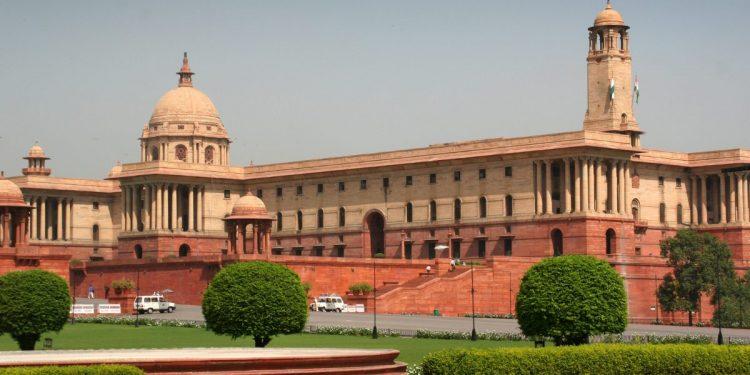Is the Controversy Over NDPS (Amendment) Act, 2021 a Storm in a Teacup?

A short amendment to the Narcotic Drugs and Psychotropic Substances Act, 1985, passed by the Lok Sabha earlier this week, has faced censure from opposition party parliamentarians, some of whom have called it unconstitutional. VINEET BHALLA dissects the matter.
———–
The Lok Sabha on Monday passed the Narcotic Drugs and Psychotropic Substances (Amendment) Bill, 2021 (2021 NDPS Bill). It replaces the NDPS (Amendment) Ordinance, 2021 that was promulgated towards the end of September. The Bill is set to be introduced for passage in the Rajya Sabha later this week.
However, the Bill came under criticism from several opposition party Parliamentarians in the Lok Sabha, who demanded the withdrawal and redrafting of the provisions of the bill.
What does the Bill do?
Section 27A of the NDPS Act, 1985, which provides punishment for financing illicit traffic of narcotic drugs and harbouring offenders under the Act. Section 27A refers to activities mentioned in sub-clauses (i) to (v) of Section 2(viiia) as the ones whose financing, or the harbouring of those who engage in them, is punished by it. Section 2(viiia) contained the definition of the term “illicit traffic”.
However, in March 2014, the NDPS Act was amended, as a result of which the clause containing the definition of “illicit traffic” in Section 2 was re-lettered as clause (viiib), as a new clause (viiia) defining “essential narcotic drugs” was added. However, the necessary corresponding amendment was not made in section 27A, which led to the anomaly of the latter now referring to the new clause (viiia) of section 2.
This anomaly was noticed by the Tripura High Court, which in June this year held that Section 27A shall be deemed to refer to Section 2(viiib) for the time being. At the same time, the court directed the union government to expeditiously and appropriately amend section 27A to correct the anomaly.
This is what was done by the 2021 NDPS Ordinance and is now sought to be concretised by the 2021 NDPS Bill , that is, amend section 27A by bringing into it Section 2(viiib) in the place of Section 2(viiia).
As per the 2021 NDPS Ordinance and Bill, the amendment of Section 27A is deemed to come into force on May 1, 2014, which means it applies retrospectively.
Why are opposition party members objecting to the Bill?
Opposition Members of Parliament (MPs) have termed the bill an “example of bad drafting”, and accused the government of “not [being] responsive nor sensitive” to the opposition’s objections pertaining to the Bill.
Indian National Congress MP Manish Tewari has flagged that the bill doesn’t address whether a substantive sentencing provision in criminal law can be given retrospective effect legislatively.
In 2014, the NDPS Act was amended, as a result of which the clause containing the definition of “illicit traffic” in its Section 2 was re-lettered as clause (viiib), as a new clause (viiia) defining “essential narcotic drugs” was added. However, the necessary corresponding amendment was not made in section 27A, which punishes the financing of illicit traffic, which led to the anomaly of the latter now referring to the new clause (viiia) of section 2.
Biju Janta Dal MP B. Mahtab opined that the retrospective nature of the amendment will lead to constitutional questions, and is liable to be challenged in court. He has also called the amendment unconstitutional for being in abrogation of Article 20(1) of the Indian Constitution.
Revolutionary Socialist Party MP N.K. Premachandran has alleged that the amendment violates Article 21 of the Constitution “because you can be punished for an offence for which there is a law in existence at the time of commission of the offence”.
Also read: [In-depth] ‘Addict to Convict: Working of the NDPS Act in Punjab’ – A CRITIQUE
Are the opposition’s objections justified, and is the amendment bad in law?
Article 20(1) of the Constitution does expressly bar the conviction of any person for an act which was not an offence under any law in place at the time the act was committed. The bar on retrospective application of any provision for a substantive offence is also an essential tenet of criminal law.
This principle has been repeatedly upheld by the highest courts of the land. For instance, in its judgment in the case of J.K. Cotton Spinning And Weaving Mills Ltd. vs. Union of India (1987), the Supreme Court noted:
“It will be against all principles of jurisprudence to impose penalty on a person or to confiscate his goods for an act or omission which was lawful at a time when such an act was performed or omission made but subsequently made unlawful by virtue of a provision of law.”
Article 20(1) of the Constitution expressly bars the conviction of any person for an act which was not an offence under any law in place at the time the act was committed. The bar on retrospective application of any provision for a substantive offence is also an essential tenet of criminal law. This principle has been repeatedly upheld by the highest courts of the land.
In its judgments in both Collector of Central Excise, Ahmedabad vs. Orient Fabrics Pvt. Ltd. (2003) and Commissioner of Central Excise, Mumbai-I vs. Lal Mining Engg. Works (2007), the apex court struck down amendments to excise legislation that provided for penal provisions with retrospective effect.
However, as the Statement of Objects and Reasons of the bill states:
“The amendment does not create any new offence but contains a legislative declaration that reference of clause (viiia) always meant the corresponding renumbered provision in clause (viiib) and the amendment seeks to rectify this anomaly by making changes in section 27A of the said Act in order to carry out the legislative intent of the statute, which has always been to read clause (viiib) in section 27A, and already stood therein.”
Indeed, no new offence is retrospectively created by the amendment, since it only seeks to rectify a drafting error which led to confusion about the application of section 27A of the NDPS Act. To that extent, it only clarifies the scope of section 27A by bringing its effect post the 2014 amendment in line with what it had been from its inception in 1989 till the 2014 amendment.
Since the 2014 amendment did not consciously seek to remove or alter the offence of section 27A (in fact, it did not even deal with it at all), it would be hard to argue that the 2021 NDPS amendment retrospectively applies a criminal offence. It merely clarifies the scope of a substantive offence which remained in place between 2014 and now.
Since the 2014 amendment did not consciously seek to remove or alter the offence of section 27A (in fact, it did not even deal with it at all), it would be hard to argue that the 2021 NDPS amendment retrospectively applies a criminal offence.
However, it is correct that the amendment bill is bound to be constitutionally challenged before the higher judiciary for, superficially at least, extending the scope of section 27A retrospectively. It is wondered if the government could have drafted the amendment bill differently to escape this entanglement, or should have stayed clear of extending the amendment retrospectively altogether. However, for the reasons stated above, courts will almost certainly refuse to interfere with the amendment.
Also read: Can the end of debate in the Parliament end the presumption of Constitutionality too?
This episode once more brings to fore yet again the need for substantive discussion before laws are passed by legislatures. It vindicates the sentiment expressed by Chief Justice of India N.V. Ramana who, at a public event in August this year, expressed concern at the lack of debate in Parliament and state legislative assemblies leading to unclear and ambiguous laws, calling it a “sorry state of affairs”.
Get the latest reports & analysis with people's perspective on Protests, movements & deep analytical videos, discussions of the current affairs in your Telegram app. Subscribe to NewsClick's Telegram channel & get Real-Time updates on stories, as they get published on our website.
























